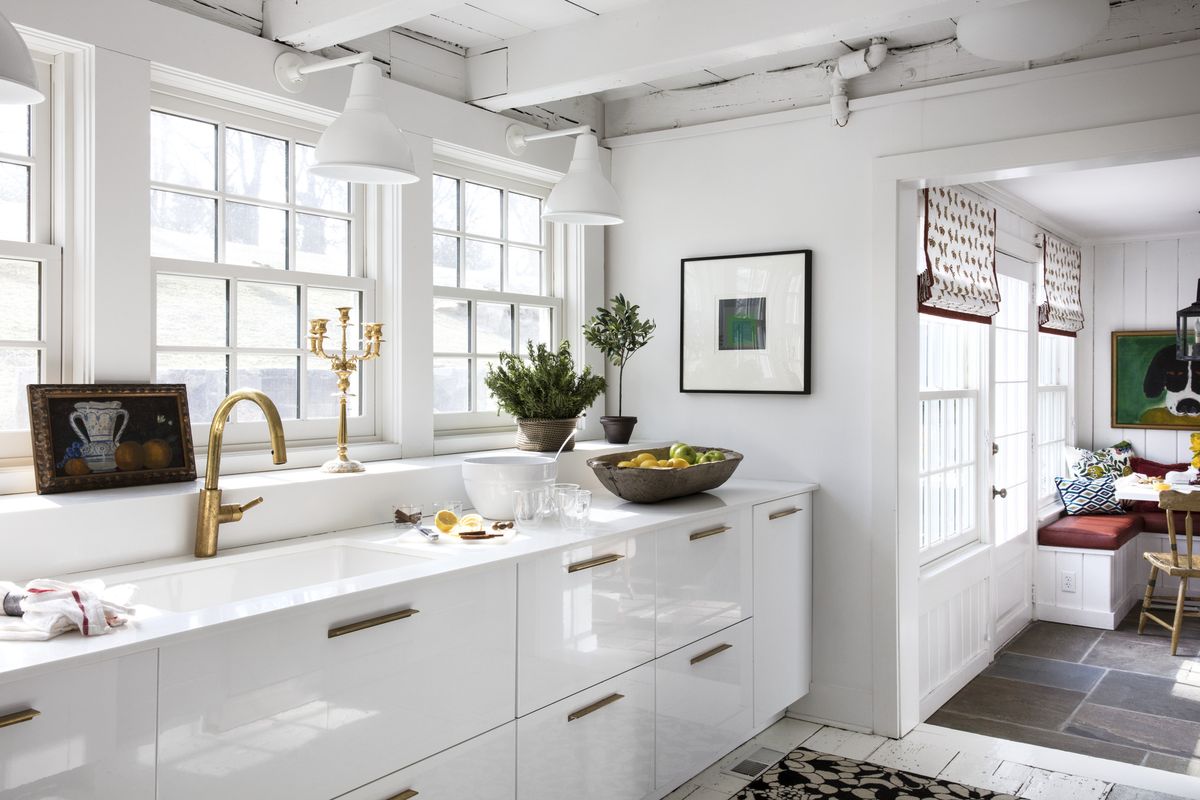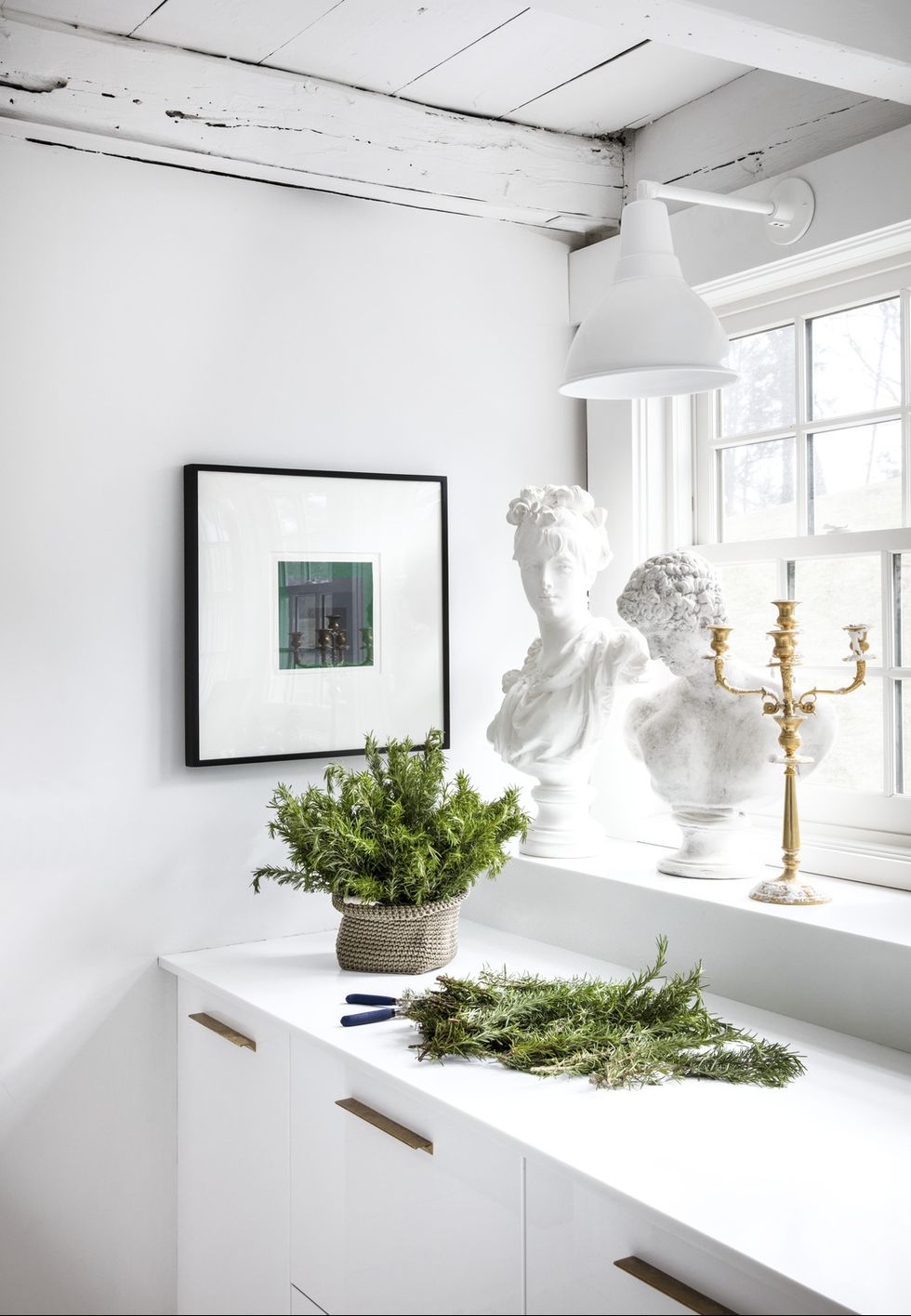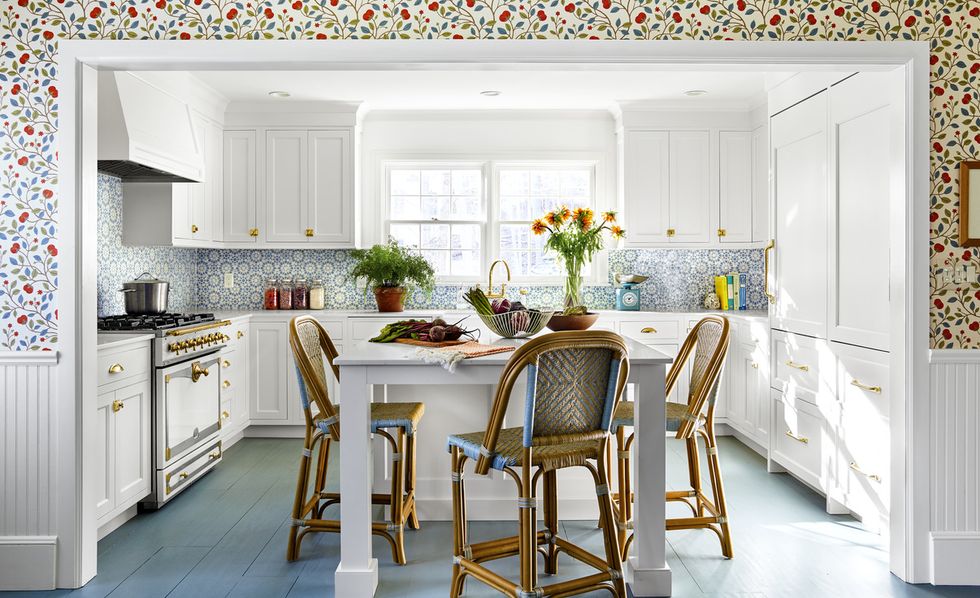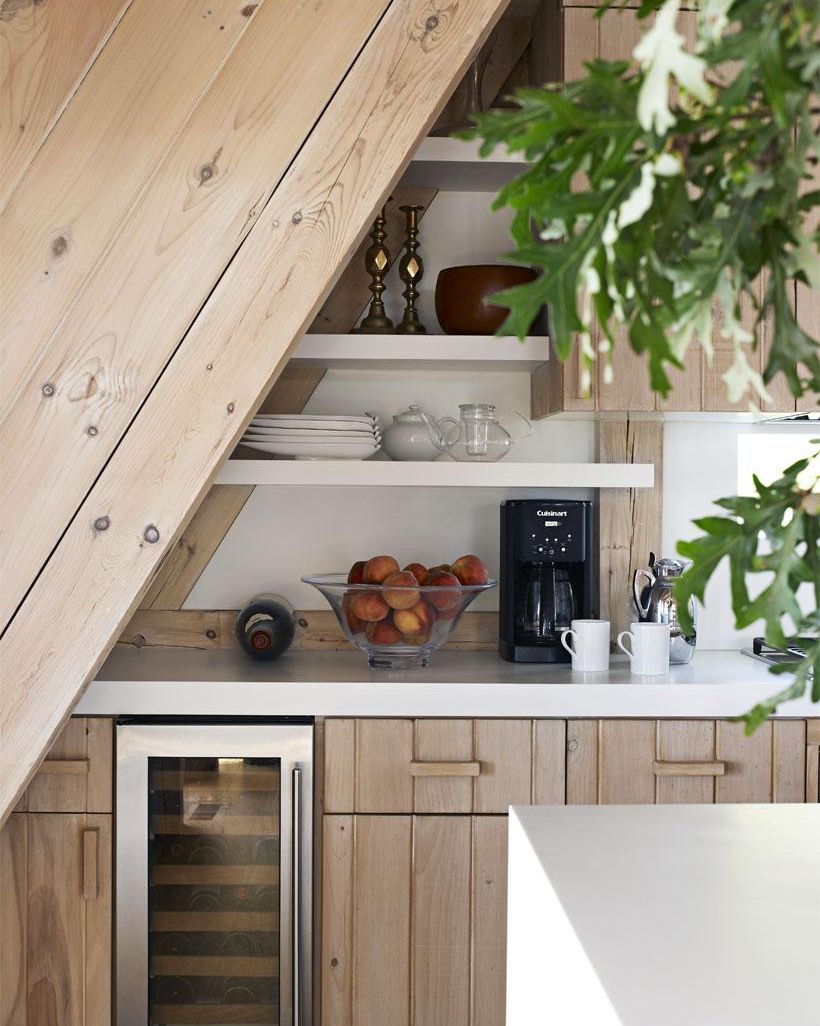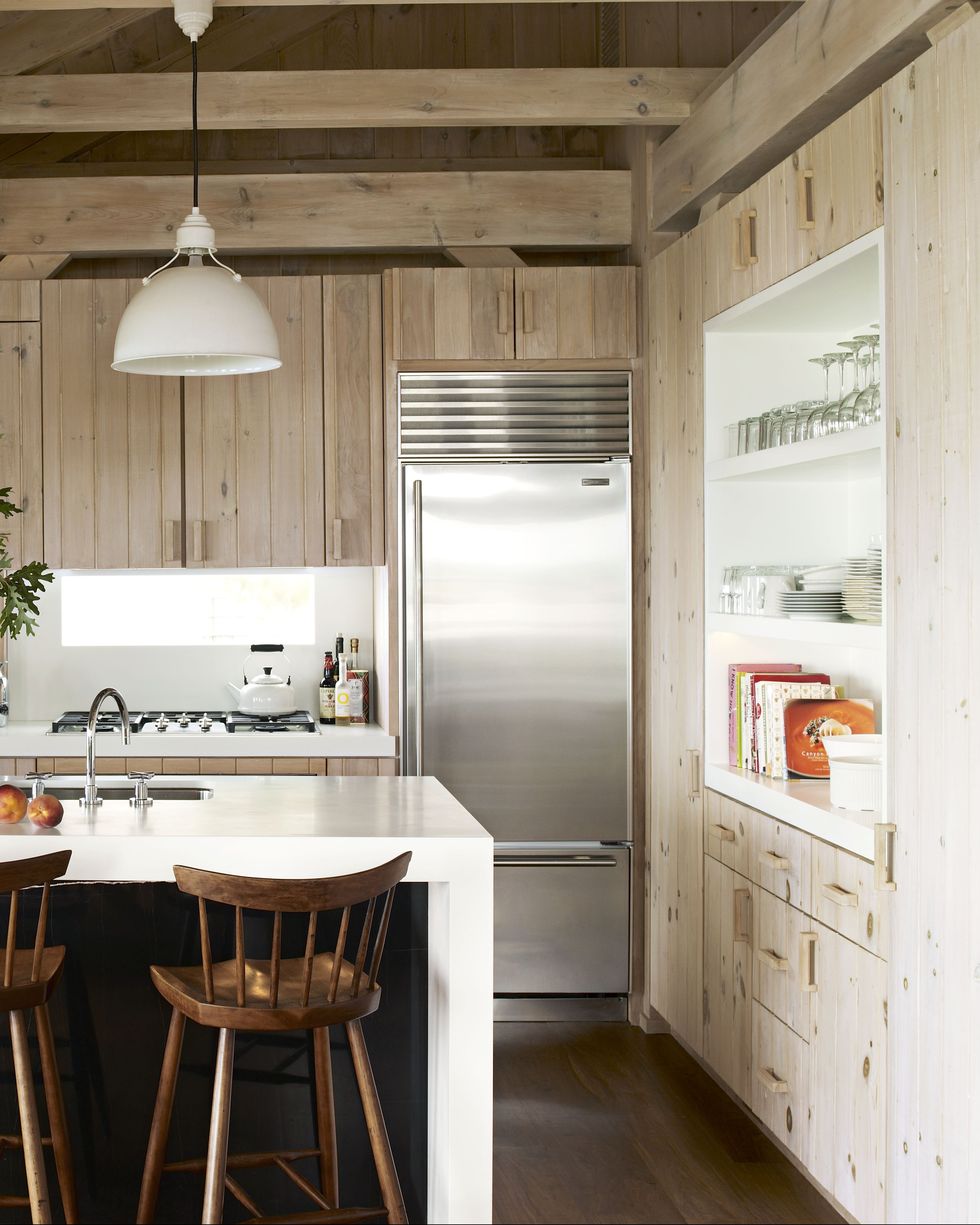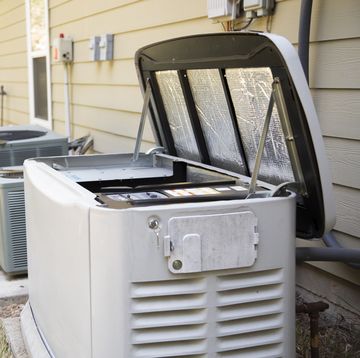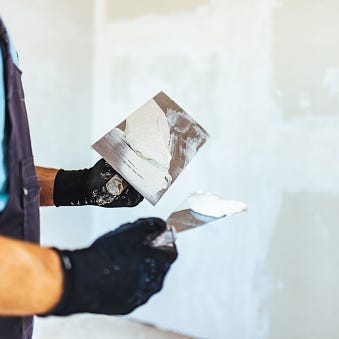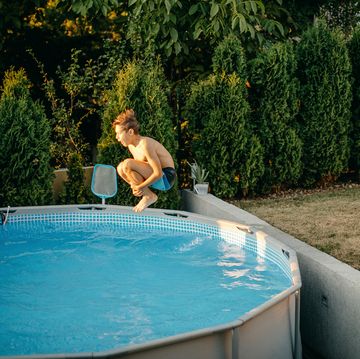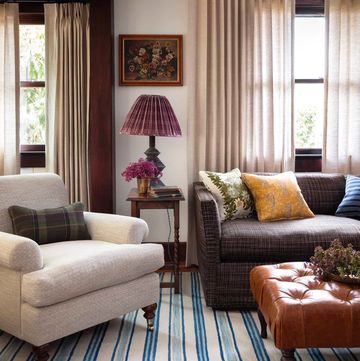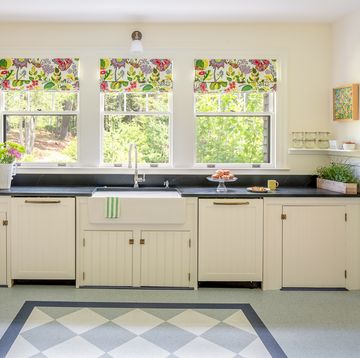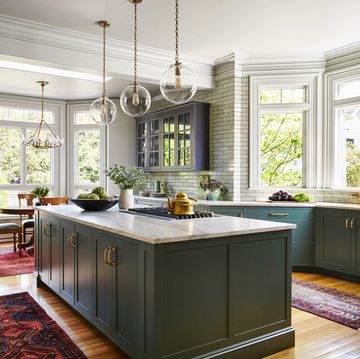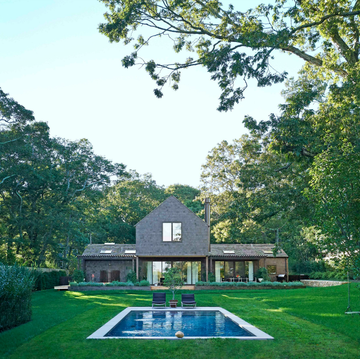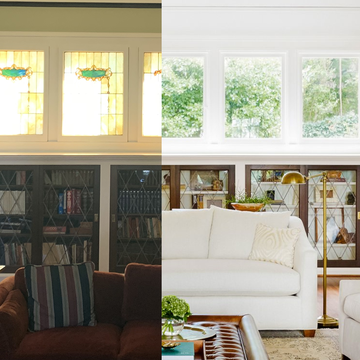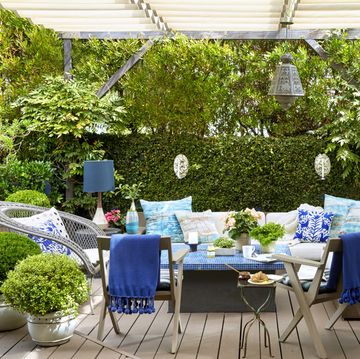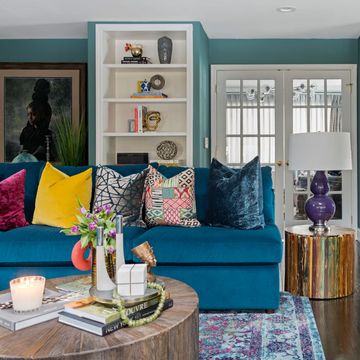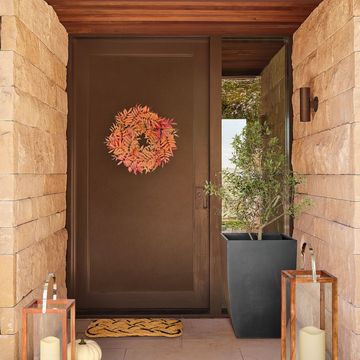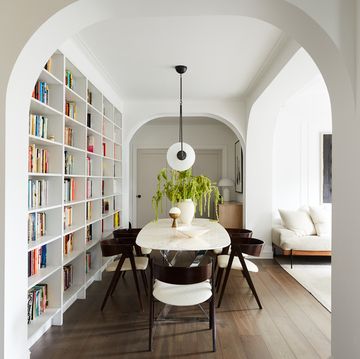When it comes to renovating a kitchen, decision paralysis is a real thing. Between choosing the right appliances for your cooking style, selecting the perfect backsplash, and ruminating over the endless countertop options out there, you could spend a year alone just narrowing down your design choices. Things become even more difficult when you factor budget into the equation, and it can be hard to find a Goldilocks countertop material that ticks both your boxes when it comes to design, budget, and durability. The good news? We're here to open your eyes to yet another possibility you may have written off for your kitchen countertops: Corian.
If the name calls to mind '80s speckled countertops, think again. Corian has come a long way (some styles even mimic the look of real stone!) and can be a great—and stylish—option to consider if budget constraints find you eschewing pricier picks like marble or quartz. Below, we're diving into everything you need to know regarding this man-made material, plus how it stacks up to its more expensive stone counterparts and why it may be the perfect option for your own kitchen.
What are Corian Countertops?
Corian is a man-made, solid surface countertop made from a molded material that is a combination of minerals and resins, resulting in a durable surface that is nonporous and budget-friendly. The name Corian actually refers to the original iteration of the substance, which was developed and patented by DuPont chemical company in the late '60s, though the phrase has since become a catch-all way to reference the many different styles of man-made solid surface countertops.
How Much do Corian Countertops Cost?
According to Angi, Corian countertops range in price from $26 to $65 per square foot, depending on the exact style and thickness you choose. When it comes to labor and installation, you can expect to spend an additional $400 to $1,000 in accordance with how difficult your project is and whether you're folding in the removal of the old countertops. Compared to pricier materials like quartz, marble, and granite (some of which can reach $100 or more a square foot), Corian is an inexpensive solution for those looking to refresh their space on a budget.
Corian Versus Quartz
Like Corian, quartz countertops are engineered from natural stone and resin. However, while Corian boasts a higher ratio of resins, quartz touts more minerals, which can increase its chameleon-like ability to appear like real stone. It also makes it the pricier option between the two, costing anywhere from $50 to $80 per square foot. Quartz is also slightly more heat-resistant than Corian, though both materials rate well when it comes to durability and stain absorption.
Pros of Corian Countertops
Corian countertops have come a long way in the last few decades, making them a very viable option for homeowners looking to undertake a transformative (yet budget-friendly!) kitchen renovation. They are durable and easily tailored to the needs of your project, whether you're looking for a unique application or the ability to do a long island without a visible seam. If necessary, they can be easily repaired by a specialist, who can buff out scratches and fix chips all without removing the countertop. Corian countertops are also among the most hygienic—because their surface is nonporous, there is no place for bacteria or mold to take hold, meaning when they look clean they actually are clean.
Cons of Corian Countertops
The biggest headache you'll encounter when it comes to Corian countertops is their lack of heat resistance. While it's always a good idea to use trivets or other heat protectants when placing warm food on your counters, it's especially important if they're Corian. Corian can only handle temperatures up to 110 degrees or so—otherwise, you risk burning (or even cracking) your countertops. There's also the possibility that your countertops can scratch—especially if you're in the habit of not using a cutting board—though because Corian is easily repaired, many may not consider this a con.
How to Design With Corian Countertops
If you've decided Corian countertops are the right choice for your kitchen renovation, congrats—now comes the fun part! The material pairs particularly well with spaces that lean modern, with the clean lines of slab front cabinetry and floating shelves. If you're shooting for a look that is timeless, select a Corian design that boasts the natural movement of a real stone, like the namesake brand's new launches Carrara Lino or Carrara Creama.
Follow House Beautiful on Instagram.
